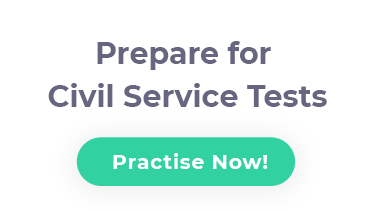The GSS Assessment Centre, SJT, Aptitude Tests, Recruitment Process & Interviews Online Preparation – 2025

What Is GSS?
The Government Statistical Service (GSS) is a scheme in the UK Civil Service. Civil Service supports the UK government in implementing policies and promoting and protecting the nation’s interests. While the scheme is part of the Civil Service, the GSS works independently to provide decision-makers with valuable insight and evidence.
The GSS is specifically for those seeking a career in statistics and who want to be at the centre of decision-making for the public good in government. Interested parties can apply directly to GSS or via the UK Fast Stream, a programme for recent graduates interested in working in government.
To be considered for a position in the GSS, applicants must:
- Be eligible to work in the UK.
- Have a 2:1 Honours degree in a math or science subject with at least 25% taught statistical content.
- Or an MSc or PhD in a subject with formal statistical training.
Working at GSS
Employees who work in Civil Service must embody the values of honesty, integrity, impartiality, and objectivity. Those in a role at GSS can expect to complete the following tasks during their time at the organisation:
- Research into new methodologies, data sources, and techniques to improve the statistical outputs that the organisation creates.
- Work with the policy teams to ensure we provide evidence-based analysis that demonstrates the leadership and capability of the group.
- Collect and analyse data and publish statistics.
- Identify customers’ needs and ensure that the research done fits that purpose.
- Find new ways to extract value from the data collected.
- Take personal responsibility throughout your time at GSS to fulfil your leadership potential.
What Is the Recruitment Process at the GSS?
Online Application
The first step of the GSS hiring process is submitting an online application. Job seekers will provide typical application information such as contact details, educational background, and work history. You may also upload a current CV and a personal statement to accompany your application.
Competency-based questions may also be asked as part of the application process. These will align with the qualifications for the role and the organisation’s values.
Aptitude and Skills Tests
Applicants who meet the basic role requirements will advance to the online psychometric assessment portion of the pre-employment process. The exact tests you encounter will vary based on the position you are applying for and the route through which you are applying, but most applicants should prepare for the following exams:
Numerical Reasoning Test
The main exam you will take is a mathematics exam, similar to a numerical reasoning exam. This assessment will focus on your ability to understand numerical information and apply mathematical concepts to solve problems. You will also see questions on interpreting data and drawing conclusions based on your analysis.
Because the GSS positions are statistics-based, the test can lean heavily into that area and be more challenging than a typical numerical reasoning exam.
This test will be timed at 45 minutes and will be multiple-choice. There will be instructions and sample questions at the beginning of the exam, so be sure to take the time to read through those. The test instructions will inform you if a calculator is permitted on the exam.
Verbal Reasoning Test
Applicants applying through Fast Stream may be required to take a verbal reasoning test. This exam will assess your ability to read, comprehend, and apply written information. You will receive several written passages, and you must read them quickly and answer multiple-choice questions about the content.
Some questions may present a concluding statement, the validity of which you must determine based on the facts presented. For this question type, you will say if the statement is true, false, or if you cannot say. Some questions may also ask about the content or grammar of the passage.
This test will also be timed, but be careful to read everything carefully and not rush through the exam. One tip is to read the questions before the passage so you know what you are looking for while reading the text.
GSS Situational Judgement Test
Candidates must also take a situational judgement test, or SJT, so the hiring team can better understand how they would likely behave on the job. SJTs present simulated workplace situations, either via video or text, where there is a situation or issue that you must respond to. You will then have several response options, and you’ll need to select the best choice or the one closest to how you would likely react in the situation. Some tests ask you to choose the least likely response, so read the instructions carefully before answering.
While it may seem like the correct response is up for interpretation, the GSS will consider a selected response as the “correct” choice. They are looking for you to respond in a way that aligns with the Civil Service values and how an ideal GSS employee would behave. Be sure to research the organisation, its mission, and what it stands for before taking the exam to help guide your responses.
Learn more about SJT tests and take a free practice test.
Other Exams
Depending on the role you are applying for, GSS may ask you to take other aptitude tests. For example, you may take a work style questionnaire for the hiring team to learn more about your strengths and weaknesses or a skills-based test for a specific skill set you need in the position.
GSS Assessment Centre
Applicants applying through the Fast Stream will be asked to attend a half-day assessment centre for the hiring team to learn more about you, your communication skills, and your collaboration abilities. This day will consist of several tasks you will complete individually and in a group with other applicants. There will be a leadership scenario where you will demonstrate your leadership skills and a written scenario to showcase your ability to disseminate information and write clearly.
Interview
Candidates who have passed the previous stages will advance to the final interview. The questions will be behaviour and competency-based, so come prepared to demonstrate areas where you’ve lived by the Civil Service values and how you can contribute to the GSS team. You will receive a list of what will be assessed before the interview, but you should read through the vacancy description and the GSS website beforehand.
Because the questions are behaviour-based, you will want to format your responses using the STAR method whenever possible:
- Situation: Describe the situation that you needed to respond to.
- Task: Detail the tasks that were required.
- Action: Talk about the actions that you specifically took toward the goal.
- Result: Explain what resulted from your efforts.
It would also be helpful to research common interview questions and tips to better prepare before the discussion.
How to Prepare for the GSS Assessment?
The GSS is looking for individuals skilled in statistics who want to use their knowledge to serve the nation. However, their selection process can be competitive. To show the hiring team that you are the best person for the position, you should take the preparation process seriously, especially for the various assessments.
Doing well in the assessment stage is crucial because you will show the GSS recruitment team that you have the necessary skills to succeed in the role. If this isn’t clear to the hiring manager, you won’t proceed.
Using online resources such as practice tests and study guides is a great way to prepare for the exams. Practice tests will allow you to rehearse your timing as well as practice answering the types of questions you will encounter on the exam. Study guides will help you better understand any concepts on the test that you need to become more familiar with or need practice with.
Applicants who take the time to prepare for the recruitment process tend to do better than those who don’t, so be sure to give yourself adequate time to study for the exams.

